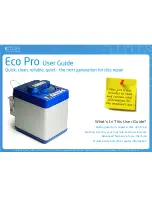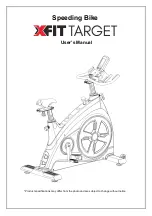
82
Operator's Manual – Self-Loading Bale Carrier
Anderson Group
Figure 44 — Order for Tightening the Nuts
To tighten them with a hand tool (such as a
pneumatic torque wrench), you will need to adjust
the tool to apply the correct tightening torque.
If you do not, the wheel studs and lug nuts may
become overloaded, which could result in them
being damaged or broken.
An impact wrench can be used to loosen the nuts,
but not to tighten them, since the tightening torque
cannot be controlled with this type of wrench.
Check and tighten the lug nuts:
l
After the first use;
l
After the first loaded run;
l
After the first 1,000 km;
l
Every 6 months or 25,000 km;
l
Each time a wheel is changed or removed.
See Table 19 for the tightening torque to apply to each nut.
7.6.3 Checking that the hubcaps are secure
Regularly check that the hubcaps are firmly in place and are in perfect condition. Immediately
replace missing or damaged hubcaps to prevent dirt from getting inside a hub, which could damage
the bearings.
l
For pop-on hubcaps, visually check that they are all the way on.
l
For hubcaps with screws, replace the gasket each time the hubcap is removed and tighten the
screws every 6 months.
Summary of Contents for RBM1400
Page 1: ...Self Loading Bale Carrier RBM 1400 2000 404676 4 Operator s Manual 2022...
Page 2: ......
Page 6: ......
Page 8: ......
Page 12: ......
Page 38: ......
Page 64: ...64 Operator s Manual Self Loading Bale Carrier Anderson Group Figure 29 Sensor Locations...
Page 75: ...Anderson Group Self Loading Bale Carrier Operator s Manual 75 Figure 35 Pusher Greasing Points...














































